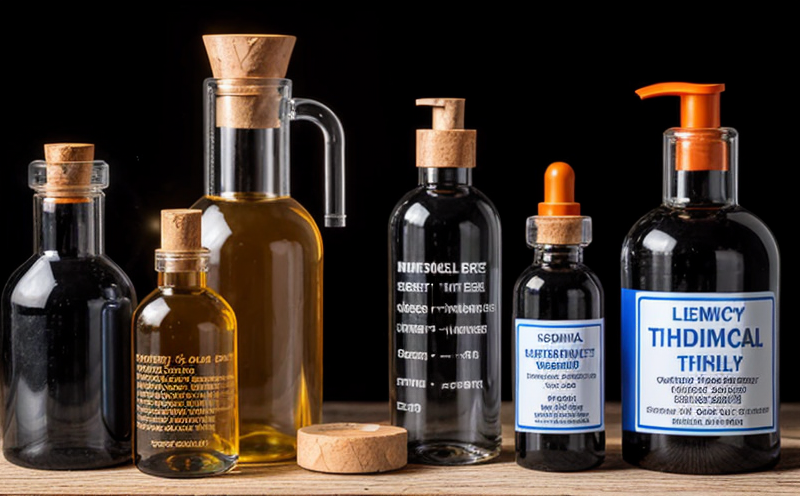
-
Chemical Safety and Certification-
Chemical Safety in Pharmaceuticals Production-
Chemical Safety for Clinical Trials in Pharmaceuticals
We provide comprehensive solutions designed to help our clients mitigate risks, enhance performance, and excel in key areas such as quality, health & safety, environmental sustainability, and social responsibility.
Discover
For many years, our organization has been operating successfully, boasting modern laboratories that meet international standards. These laboratories are equipped with the latest technology devices and equipment, and we have built a strong team of experienced and trained personnel to operate them.
DiscoverWelcome to Eurolab, your partner in pioneering solutions that encompass every facet of life. We are committed to delivering comprehensive Assurance, Testing, Inspection, and Certification services, empowering our global clientele with the ultimate confidence in their products and processes.
Discover
-
Chemical Safety and Certification-
Chemical Safety in Pharmaceuticals Production-
Chemical Safety for Clinical Trials in PharmaceuticalsChemical safety during clinical trials is a critical component in pharmaceutical development. As new drugs and medical products are tested, it is essential to ensure that the chemicals involved, whether active pharmaceutical ingredients (APIs) or excipients, do not cause harm to participants, researchers, or the environment. Proper chemical safety protocols are key in maintaining the integrity of the clinical trial, complying with regulatory standards, and safeguarding public health.
Clinical trials often involve the use of potent chemicals that can affect human health in a variety of ways. These chemicals are tested on volunteers and patients to determine their safety, efficacy, and appropriate dosages. Therefore, ensuring chemical safety is paramount in clinical trials to protect the participants and maintain the credibility of the study results.
Key reasons chemical safety is crucial in clinical trials include:
Ensuring chemical safety throughout the clinical trial process involves multiple phases, from planning through to execution and post-trial monitoring. Key steps include:
1. Pre-Trial Risk Assessment
2. Selection of Safe Chemicals
3. Proper Labeling and Handling of Chemicals
4. Personal Protective Equipment (PPE) for Trial Staff
5. Safe Drug Administration and Monitoring
6. Waste Management and Disposal
7. Post-Trial Chemical Safety and Reporting
While chemical safety protocols are in place, several challenges can arise in clinical trials:
1. What chemicals are involved in clinical trials, and why is safety important?
2. How can chemical risks be assessed in a clinical trial?
3. How is the safety of participants ensured during drug administration?
4. What is the role of PPE in clinical trial chemical safety?
5. What happens to chemicals after a clinical trial?
Chemical safety in clinical trials is a fundamental part of the pharmaceutical research process, ensuring that drugs are tested in a manner that protects both participants and the environment. By following stringent safety protocols, from pre-trial risk assessments to post-trial chemical disposal, pharmaceutical companies can manage the risks associated with chemical exposure, ensuring the successful development of safe and effective drugs.

Food Safety and Testing
Food Safety and Testing: Ensuring the Quality of Our Food As consumers, we expect our food to be sa...

Chemical Safety and Certification
Chemical safety and certification are critical in ensuring the safe management of products and proce...

Trade and Government Regulations
Trade and government regulations play a vital role in shaping the global economy. These regulations ...

IT and Data Center Certification
IT and Data Center Certification: Understanding the Importance and Benefits The field of Informatio...

Electrical and Electromagnetic Testing
Electrical and Electromagnetic Testing: A Comprehensive Guide Introduction Electrical and electrom...

Environmental Impact Assessment
Environmental Impact Assessment: A Comprehensive Guide Environmental Impact Assessment (EIA) is a c...

Product and Retail Standards
Product and Retail Standards: Ensuring Quality and Safety for Consumers In todays competitive marke...

Fire Safety and Prevention Standards
Fire Safety and Prevention Standards: Protecting Lives and Property Fire safety and prevention stan...

Energy and Sustainability Standards
In today’s rapidly evolving world, businesses face increasing pressure to meet global energy a...

Construction and Engineering Compliance
Construction and Engineering Compliance: Ensuring Safety, Quality, and Regulatory Adherence In the ...

Environmental Simulation Testing
Environmental Simulation Testing: A Comprehensive Guide In todays world, where technology is rapidl...

Railway Industry Compliance
Railway Industry Compliance: Ensuring Safety and Efficiency The railway industry is a critical comp...

Transportation and Logistics Certification
Transportation and Logistics Certification: A Comprehensive Guide The transportation and logistics ...

Consumer Product Safety
Consumer Product Safety: Protecting Consumers from Harmful Products As a consumer, you have the rig...

MDR Testing and Compliance
MDR Testing and Compliance: A Comprehensive Guide The Medical Device Regulation (MDR) is a comprehe...

Aviation and Aerospace Testing
Aviation and Aerospace Testing: Ensuring Safety and Efficiency The aviation and aerospace industr...

Agricultural Equipment Certification
Agricultural equipment certification is a process that ensures agricultural machinery meets specific...

Cosmetic Product Testing
The Complex World of Cosmetic Product Testing The cosmetics industry is a multi-billion-dollar ma...

Pressure Vessels and Installations Testing
Pressure Vessels and Installations Testing Pressure vessels are a critical component of various ind...

Renewable Energy Testing and Standards
Renewable Energy Testing and Standards: Ensuring a Sustainable Future The world is rapidly transiti...

Automotive Compliance and Certification
Automotive Compliance and Certification: Ensuring Safety and Efficiency The automotive industry is ...

Military Equipment Standards
Military Equipment Standards: Ensuring Effectiveness and Safety The use of military equipment is a ...

Pharmaceutical Compliance
Pharmaceutical compliance refers to the adherence of pharmaceutical companies and organizations to l...

Electromechanical Safety Certification
Electromechanical Safety Certification: Ensuring Compliance and Protecting Lives In todays intercon...

Healthcare and Medical Devices
The Evolution of Healthcare and Medical Devices: Trends, Innovations, and Challenges The healthcare...

Hospitality and Tourism Certification
Hospitality and Tourism Certification: Unlocking Opportunities in the Industry The hospitality and ...

NEBS and Telecommunication Standards
Network Equipment Building System (NEBS) and Telecommunication Standards The Network Equipment Bu...

Industrial Equipment Certification
Industrial equipment certification is a critical process that ensures industrial equipment meets spe...

Lighting and Optical Device Testing
Lighting and Optical Device Testing: Ensuring Performance and Safety Lighting and optical devices a...

Battery Testing and Safety
Battery Testing and Safety: A Comprehensive Guide As technology continues to advance, battery-power...